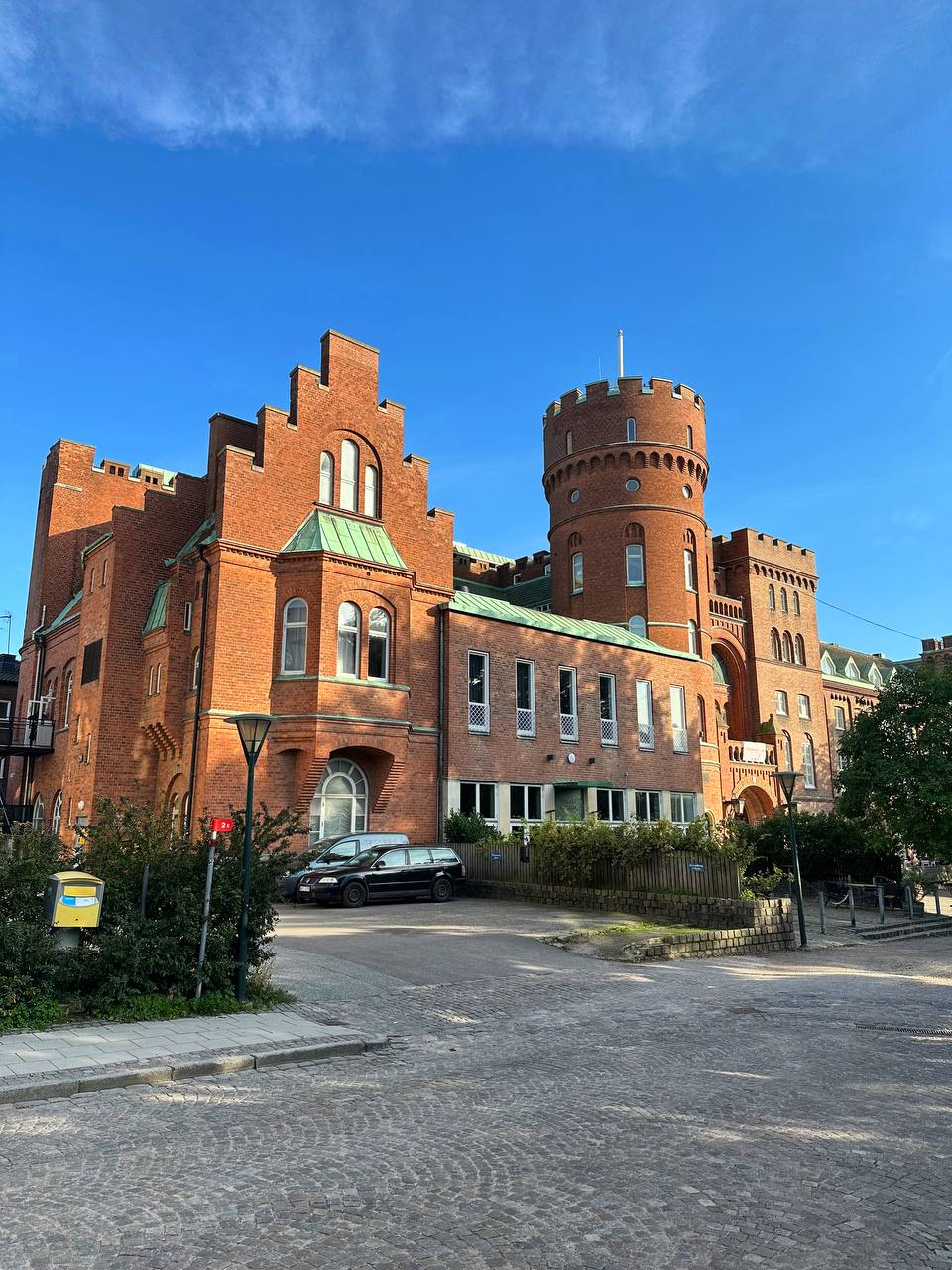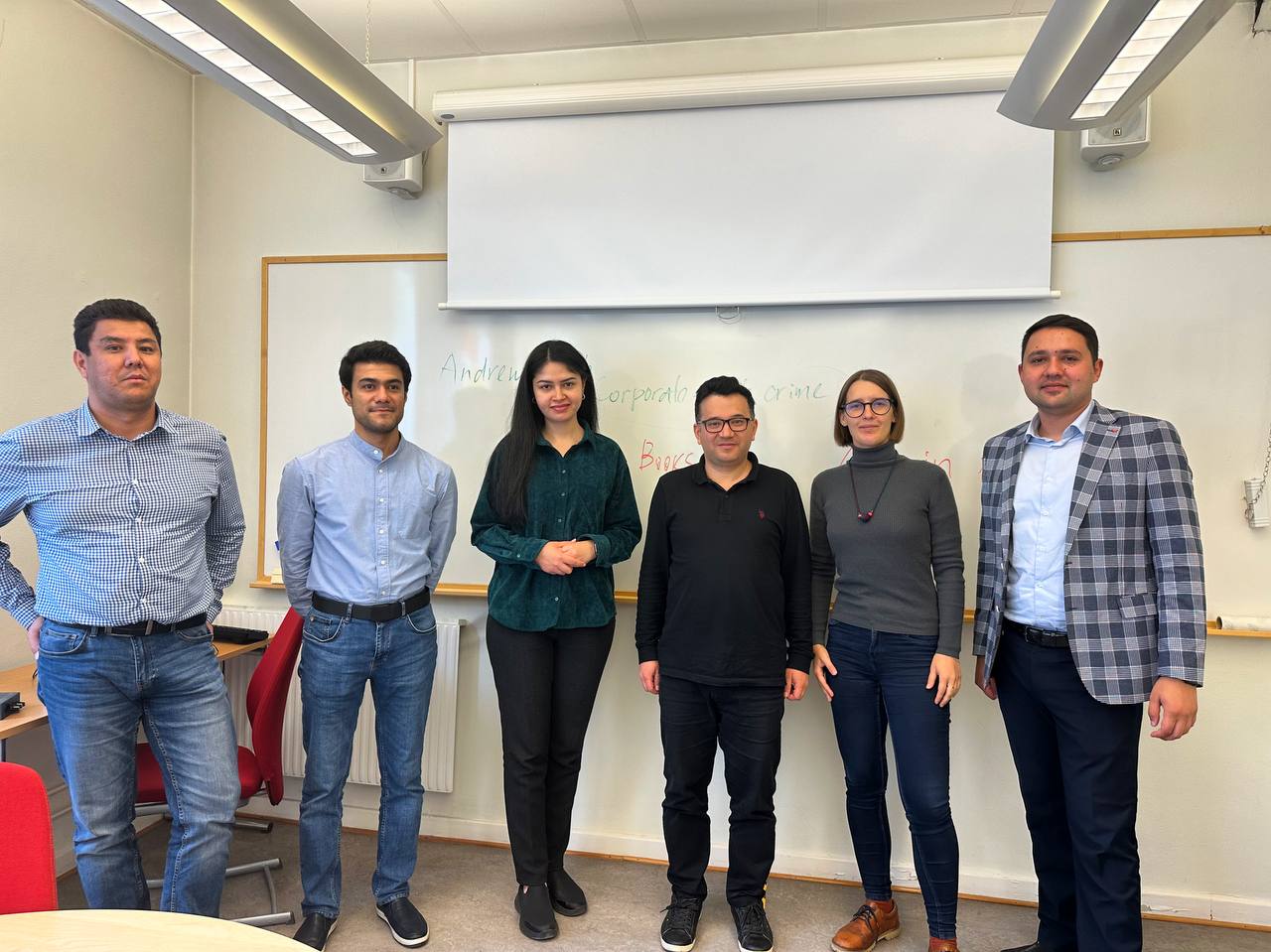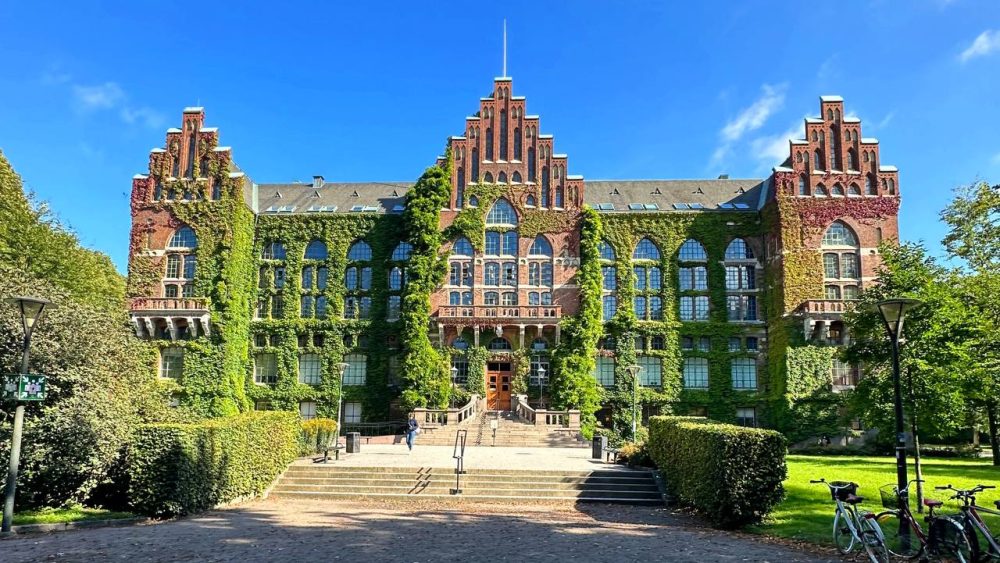by Oydin Norova, guest researcher from the General’s Prosecutor’s Office of the Republic of Uzbekistan
Hi everyone! My name is Oydin Norova; I’m a representative of the General’s Prosecutor’s Office of the Republic of Uzbekistan! This is my blog about my unforgettable experience as a guest researcher at Lund University under the project “MOCCA: Multilevel Orders of Corruption in Central Asia”, funded by the European Commission.
I arrived in the wonderful city of Lund on September 1. From the first days, this small town fascinated me with its beautiful nature, cosiness, special atmosphere of silence and solitude.
I started my secondment by discovering the city. There are small streets, gothic palaces, red brick towers and old mansions that look like haunted houses like in the films. Walking down the street, you feel like you are in some old fairy tale. I also really liked that in Lund, everything is within easy reach on foot or by bicycle, which means that the place you need is usually no more than 5-20 minutes away from where you are.

I would call this city a city of youth. This is not surprising because a significant part of the population of the city are students of Lund University. Lund is considered one of the main university cities not only in Sweden but also in the whole of Scandinavia. By the way, did you know that according to the New York Times, Lund University is included in the top 100 universities on employment of graduates? When you come here, you feel like a student and want to go back to your student days.
Secondment at Lund University is a great opportunity for those who want to contribute to changing the situation of corruption in a positive way. My research topic is “Challenges and prospects for the implementation of certain international anti-corruption standards in Uzbekistan”. The relevance of the topic is that the issue of corruption has now become global and systemic. Corruption causes great losses for society, economy and the state. The 2021 Corruption Perceptions Index (CPI) released by Transparency International showed that corruption levels remain at a standstill worldwide, with 86 per cent of countries making little to no progress in the last 10 years[1].
This phenomenon has now become a serious threat to the country’s further social and economic development. All these and several other problems make it objectively necessary to improve anti-corruption measures, including through the implementation of international anti-corruption standards in national legislation.
Uzbekistan has formed an extensive legal and organizational framework for preventing corruption: the main international agreements have been ratified, conceptual strategic and national anti-corruption documents have been adopted, and legislations aimed at their implementation are in force. As a member of international anti-corruption treaties, Uzbekistan is taking consistent and systematic measures to improve legislation and law enforcement practices by adopting international anti-corruption standards.
In our opinion, currently, one of the most relevant issues is the establishment of criminal liability of legal persons. Although most countries in the world have introduced and successfully applied the institution of criminal liability of legal persons, the legislation of Uzbekistan does not contain provisions on corporate criminal liability. Of course, Uzbekistan has civil and administrative types of liability for legal entities. However, according to experts and researchers, these mechanisms of influence are less effective. Moreover, the study of foreign legislation makes it possible to propose possible criminal law provisions establishing the liability of legal persons for corruption offences.
During my presentation, I briefly summarized the content of my research and the next steps in studying the topic. I have discussed my research questions with researchers and experts at the Sociology of Law Department of Lund University and received relevant recommendations.

Using this opportunity, I would like to thank Lund University and the MOCCA project for an unforgettable experience and a great opportunity. I would also like to thank the Sociology of Law department for being patient with us, for support, responsiveness and a friendly atmosphere.
[1] Transparency International, “2021 Corruption perception index reveals a decade of stagnating corruption levels amid human rights abuses & democratic decline”, <https://www.transparency.org/en/press/2021-corruption-perceptions-index-press-release>

